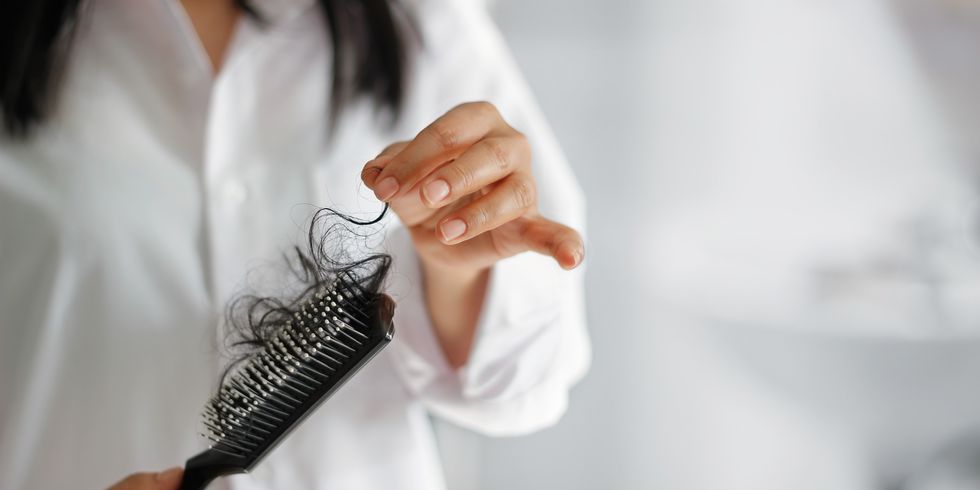It starts innocently enough. Somewhere north of 40, you might find yourself getting your first pair of glasses so you can read the fine print, that, at one point, didn’t look so darn tiny. But ladies, that’s just the beginning. With menopause approaching, our bodies and minds start going through a cascade of changes, many of which can leave us feeling frustrated, uncomfortable and just plain weird, if we let them.
There’s a lot of unnecessary shame around the uncomfortable aspects of the aging process, says Laura Berman, PhD, a sex and relationship educator and therapist author of Quantum Love. “Women are often reticent to bring it up at all. A lot of women still suffer in silence.”
While you may not feel so great about the changes you’re experiencing, knowing that to expect and how to cope can help soothe any feelings of unease. Here you’ll find seven not-so-comfortable midlife issues that are actually super common—even if no one is talking about them at your weekly ladies brunch. Plus, tips for coping with each.
Brain fog becomes an all-the-time thing

If you’ve been particularly forgetful lately or always seem to be looking for something you misplaced, don’t freak out and assume it’s early onset dementia. Becoming forgetful as menopause approaches is a real thing, one small study confirms. Leading a busy life can also contribute. “Everybody has moments of mental fog. Does that mean we’re all going to have Alzheimer’s? No. It just means we’ve all got too much going on,” says Susan Besser, MD, a family medicine provider with Mercy Personal Physicians in Overlea, Maryland.
The fix: If it will set your mind at ease, see your doctor, Besser suggests. “There are plenty of tests that can be done to determine if there’s too much on your plate or if it’s something more serious.” You could also try slowing down a bit to see if that helps. These four other tips are also worth a shot.
You may experience leaky bladder

Pregnancy, childbirth, and menopause can all contribute to loss of bladder control in women. In fact, that “gotta go” feeling along with the occasional leakage that happens with coughing, sneezing, or laughing affects about 40% of women over 40, says Barbara Hannah Grufferman, author of Love Your Age: The Small Step Solution to a Better, Longer, Happier Life.
The fix: Exercises can help, especially Kegels.
Your hair might start falling out
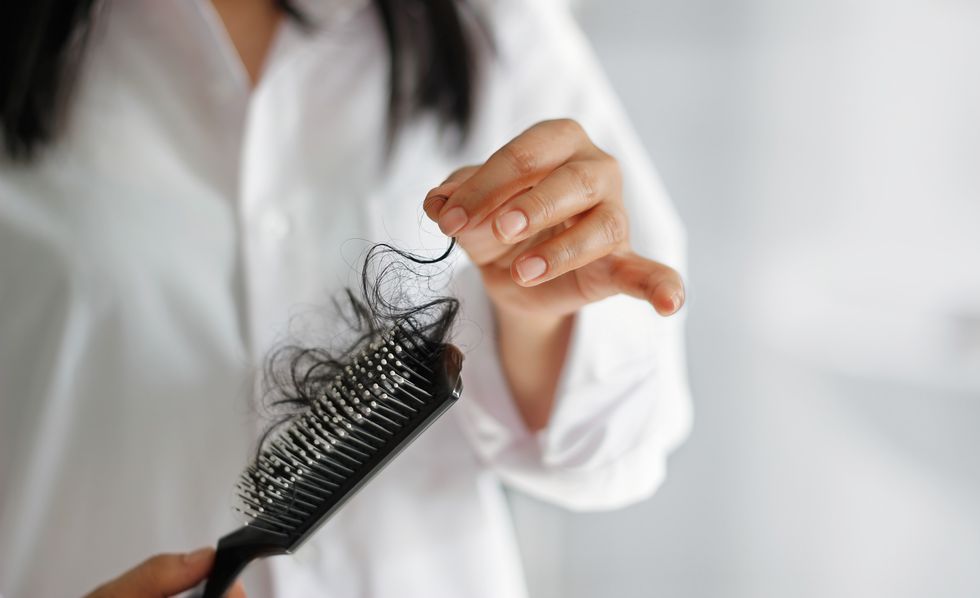
Throughout our lives, the amount of hair we have fluctuates. A fuller, healthier mane is common during pregnancy, as is follicle fall-out once the baby is born. And thanks to a shift in hormones, hair loss can also occur as menopause approaches.
The fix: There are a number of products for thinning hair that add volume to a mane that’s lost some of its oomph. If you’re losing a significant amount of hair, though, it may be worth a visit to the dermatologist who can prescribe you a medication that stimulates hair growth.
You could grow facial hair
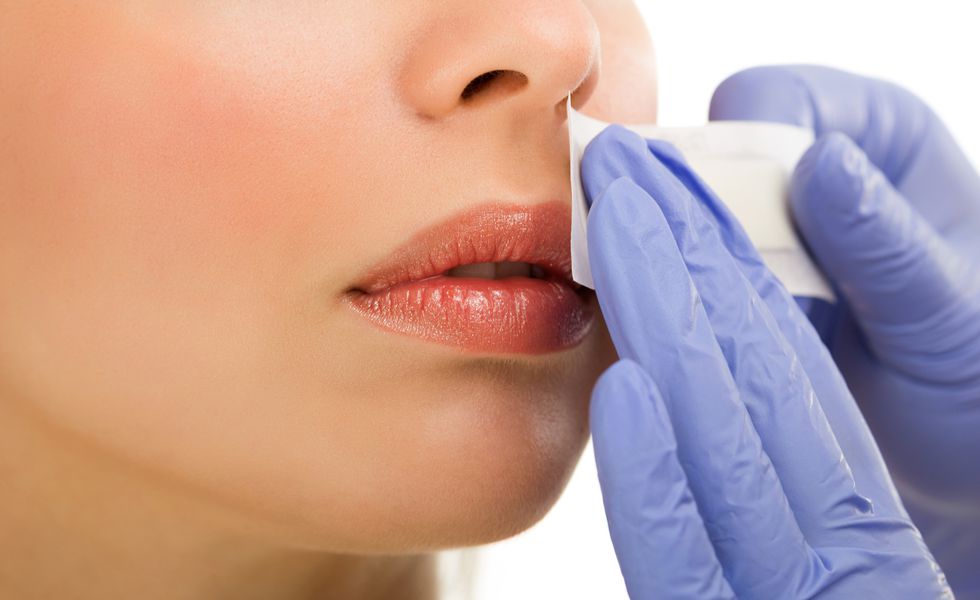
As women age, estrogen levels dip and testosterone levels rise, which can lead to hair growth on the face, chin, knuckles, and toes. “The worst is when you walk out the door feeling like you’re looking good and then you look in the rearview mirror, and you see you’ve got a full-on beard,” says Jackie Morgan MacDougall, founder and CEO of Forty Thrive, a community for women over 40.
The fix: Go into natural light when you do your tweezing. “I keep a pair of tweezers in my car because that’s where I can really see everything, so I just take a moment before I start the car to deal with it,” says Morgan MacDougall. There are other solutions, too, like bleaching, waxing, laser hair removal, electrolysis, and prescription hair removal cream.
Gray hair shows up literally everywhere
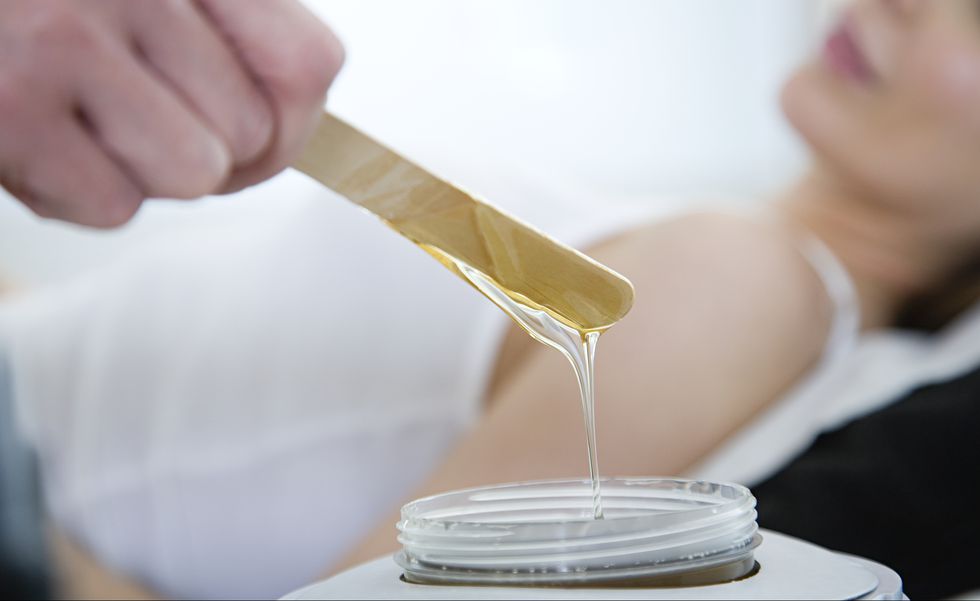
Most of us acknowledge that gray hair is a part of aging, but does it have to show up everywhere? Apparently, yes. Gray hair down there can be especially embarrassing with a new partner, which is increasingly common for women over 50. “Fifty percent of people over 50 are single by choice or circumstance,” says Grufferman. “There’s a lot of people out there who may be looking for love later in life. And for them and others, this is a [concern].”
The fix: Tweezing can work for a stray gray, but if most of your hair is gray, and it makes you uncomfortable, you may want to consider getting a Brazilian wax, Grufferman suggests. Caution: If you want to dye it, don’t use products for your head, which can contain harsh chemicals. Instead, opt for dye designed for the nether regions in your natural color or bold shades like bright blue or pink.
You could experience hot flashes—for a decade

Up to 80% of women experience hot flashes during menopause, and research suggests that for some women, the heat can last for 7 to 11 years. “Being in the middle of a conversation and feeling like you are being lit on fire from within can be really challenging,” says MacDougall. “Especially if you’re trying to pull it off without the other person noticing.”
The fix: Discuss debilitating hot flashes with your gynecologist, who may suggest hormone replacement therapy, Dr. Besser says. (Note: HRT comes with risks, including increased chance of blood clots, heart attacks, stroke, and breast cancer.) Non-hormonal medications, including some antidepressants, may also help. For mild to moderate symptoms try simple solutions like turning down the heat, dressing in layers, and wearing clothing made from wicking fabrics. Brands like Lululemon and MPG Sports make everyday casual wear from performance materials that can help keep you cool and dry.
Sex might become uncomfortable
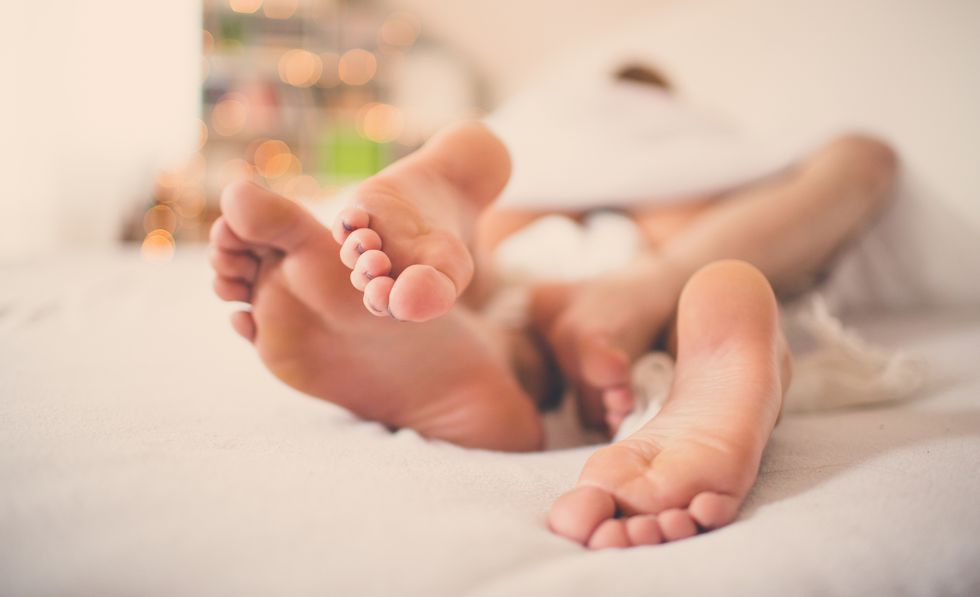
There are many reasons this may occur in midlife, but the primary culprit is vaginal dryness. “Dryness is a huge issue for women. As we age our estrogen starts to decline, and it can lead to painful intercourse and loss of desire,” says Berman.
The fix: If the problem is mild start with over the counter vaginal moisturizer or lubricant like Uberlube or Good Clean Love Almost Naked Personal Lubricant. Organic coconut oil works great, too. But if that’s not enough, ask your doctor about prescribing a topical vaginal estrogen ring, tablet, or cream, Besser says. Communicating with your partner can also help, Berman says. “It helps to have more foreplay, slow down a little bit. Make sure you increase arousal before intercourse begins because that will really help blood flow and lubrication.”
Your sex drive may vanish
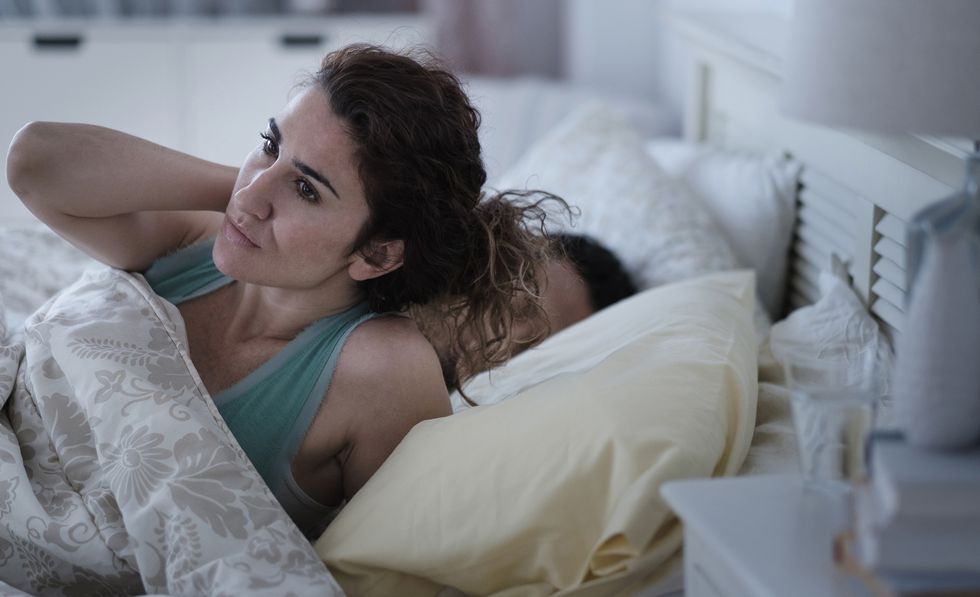
Midlife sex issues are common—and experiencing pain during sex isn’t the only reason some women shy away from the bedroom as they age. “Stress is a major factor in low interest,” Berman says. Antidepressants like Prozac and Zoloft can also contribute to the problem.
The fix: Check with your doctor to make sure your waning desire isn’t actually a red flag for another medical issue like thyroid imbalance or heart disease. Getting more playful in the bedroom can help. And if you haven’t already, consider joining the cadre of women who use vibrators to stimulate their bodies and their drive. (Never owned one before? Sex experts recommend these nine vibrators for newbies.) Not only can masturbation spice up your sex life and get you in the mood, but it’s also a major stress reliever.




